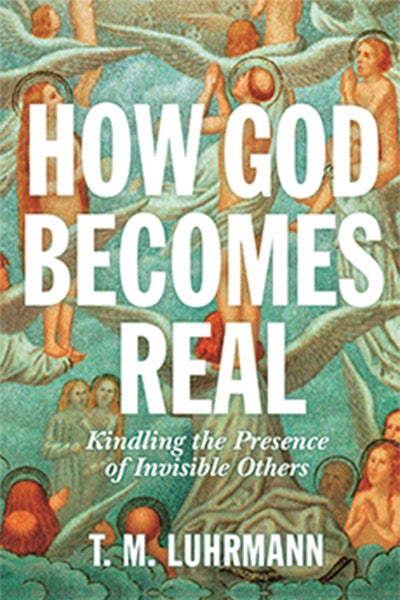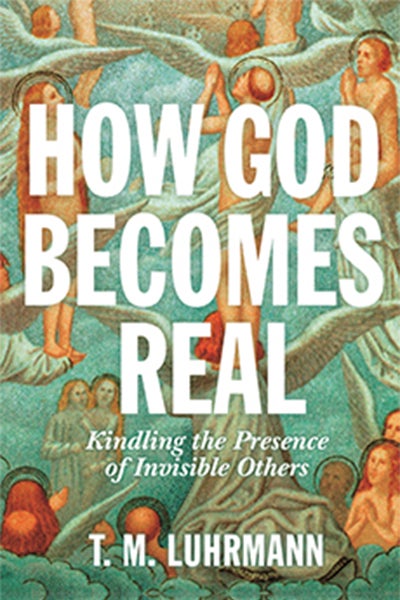Reviewed by Brenton Kalinowski, Department of Sociology

Much work in the social sciences categorizes individuals as either believing in God or not. That belief, or lack thereof, is then examined in relationship with other variables to explain certain outcomes. T.M. Luhrmann’s How God Becomes Real: Kindling the Presence of Invisible Others explores belief in God as more than a simple variable by investigating the nature of belief itself. Using an interdisciplinary anthropological and psychological approach Luhrmann investigates how gods become real for individuals and communities.
Luhrmann outlines two key concepts to explain the process of making God real, the faith frame and kindling. The faith frame is a way of thinking that exists alongside everyday thinking but involves different expectations and leaves open the possibility of connecting with God. Luhrmann argues that anthropologists have traditionally considered Western societies to have a separate understanding of the natural world and the spiritual worlds while non-Western societies, do not distinguish between the two. She contends that, in fact, all people recognize a difference between the practical, everyday world and the supernatural; for example, someone may pray for a good grade on an exam, but they do not expect that God will take the test for them.
Kindling is the idea that spiritual experiences or connection with God must be curated and nurtured, and most often, these experiences are initiated through prayer or other religious rituals. Luhrmann also argues that talent and training are important, as some individuals are better able to see different signs and/ or experiences as evidence of God’s presence or communication. While some are naturally more adept at this, most people obtain that ability to notice such signs through repetition and practice often through prayer or other rituals.

The book argues that all cultural and religious groups have a process by which they experience and understand their divine being as real. Luhrmann draws on decades of fieldwork with various global religious communities to illustrate the culturally patterned ways that different groups experience and understand the realness of God. In Accra, Ghana, for example, evangelical Christian believers are likely to claim "hearing" God. "In the United States, God feels emotionally hurt when His humans don't pay attentio to Him. In Chennai, [India], God withdraws; if you are not r esponsive, you cannot find Him. In Accra..., God punishes those who neglect Him," she says.
While the anthropological case studies in the book were varied and used to great effect in conjunction with psychological insights from Luhrmann’s own research, these insights sometimes felt under explored. For example, Luhrmann draws on the concept of the absorption scale, which is used to better understand individuals’ proclivity to experience connection with the supernatural, but I felt the book could have used further examination of the external validity of the scale, or its applicability to the real world and across cultures.
Despite this minor shortcoming, Making God Real is an insightful and valuable book for scholars in the social science and religious studies interested in the interpretive experience of belief; religious individuals with a desire to reflect on how belief works; or anyone that wants to learn more about the nature of consciousness and the supernatural. By pairing rich anthropological insights with psychological perspectives, Luhrmann has covered new ground in our understanding of religion.
Luhrmann, T.M. How God Becomes Real: Kindling the Presence of Invisible Others, Princeton, NJ: Princeton University Press, 2022.

